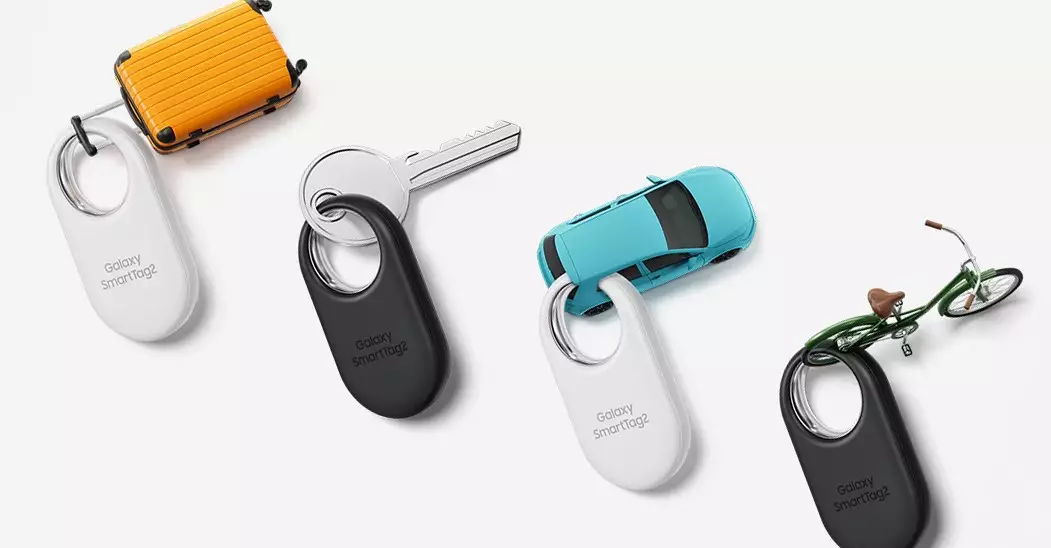In a world increasingly dominated by smart devices, the need for efficient tracking solutions has never been more critical. Samsung’s introduction of SmartTags, integrated with their SmartThings ecosystem, aimed to position the company as a leader in this space. However, the limitations of these trackers—especially their restricted compatibility—have sparked creativity among developers. One such innovation is the open-source app uTag, which expands the usage of SmartTags beyond the confines of Samsung’s Galaxy devices. This article explores the nuances of how uTag enriches the user experience by introducing versatile functionalities while navigating the potential pitfalls of integrating third-party applications with proprietary technology.
Samsung’s SmartTags function similarly to Apple’s AirTags, utilizing ultra-wideband (UWB) technology for precision tracking. These trackers allow users to locate personal items with impressive accuracy within the Galaxy ecosystem. However, this useful technology comes with restrictions. Exclusively designed for Samsung Galaxy devices, SmartTags can leave a significant number of Android users—who might prefer other brands—in the lurch. This limited access to SmartThings features such as SmartThings Find signifies a gap in Samsung’s otherwise robust offerings. For many users, particularly those loyal to brands outside Samsung, this poses an inconvenience.
Unfortunately, the limitations of the SmartThings app are exacerbated by a software check that only allows users to set up SmartTags via Galaxy devices. Consequently, many users are left wanting—a sentiment that resonates throughout the tech community. The absence of cross-compatibility highlights a recurring theme in technology: proprietary systems can alienate users rather than empower them.
Developed by Kieron Quinn, the uTag app is a beacon of hope for users of non-Galaxy Android devices running Android 11 or later. By bypassing the restrictions inherent in SmartThings, uTag significantly broadens the functionality of Samsung’s SmartTags. The app replicates core features found in the SmartThings app, allowing users to receive alerts when a Tag is left behind, trigger sound notifications, and maintain a history of location tracking.
Perhaps most importantly, uTag introduces a feature sorely lacking in the original SmartThings app: automatic scanning. Users can now receive notifications when unknown Tags are detected without needing to initiate a manual scan. This functionality not only makes the app more user-friendly but also enhances the potential for finding lost items, thereby addressing a critical requirement for effective tracking solutions.
Risk and Reward: Third-Party Applications
While the benefits of using uTag are compelling, the dynamics of third-party apps always generate questions regarding security and privacy. Users must sign into both the uTag and SmartThings apps, raising concerns about data integrity and unauthorized access. However, Quinn has opted to make uTag an open-source application, inviting scrutiny and transparency into its functions. This proactive step reassures users about the safety of their credentials while also fostering trust within the tech community.
Nevertheless, users should still exercise caution. The security of one’s data is paramount, especially when utilizing third-party applications. The decision to engage with uTag requires a delicate balance between the benefits of convenience and the inherent risks of sharing information.
As technology continues to evolve, the capabilities of apps like uTag indicate a robust future for personalized tracking solutions. There’s potential for further developments that expand compatibility across devices, enriching user experiences across brands. Open-source initiatives could pave the way for developers to innovate more within the space of GPS and item tracking.
While Samsung’s SmartTags have established a strong footing in the realm of item trackers, the limitations of their ecosystem created a clear necessity for a broader compatibility solution. With uTag stepping in, users are empowered to leverage Samsung’s technology without being locked into their hardware. As we move forward, the rise of applications like uTag may urge manufacturers to reconsider the design of their ecosystems, ultimately creating a more inclusive environment for all tech enthusiasts.

